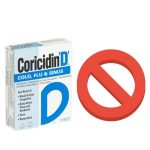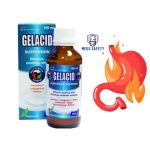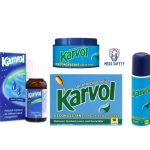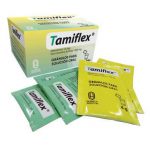Coricidin HBP: Ingredients, Benefits, Dosage, Side Effects, High
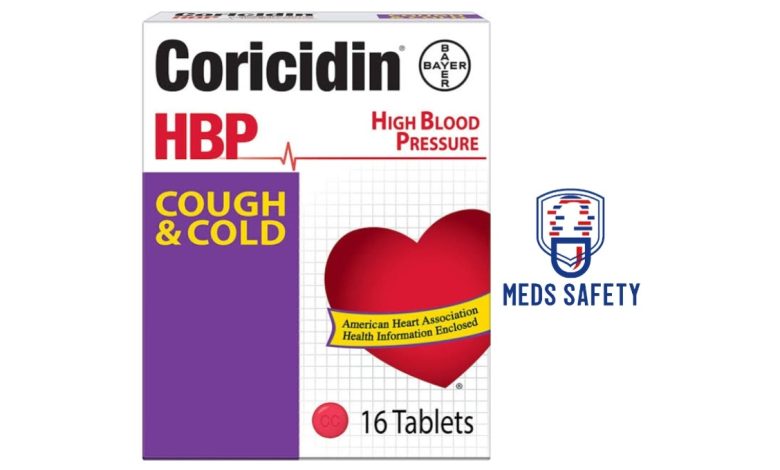
Coricidin HBP (High Blood Pressure) is an over-the-counter medication that is primarily used to relieve the symptoms associated with the common cold, such as coughing, congestion, and sneezing.
Coricidin HBP contains two active ingredients:
1. Chlorpheniramine maleate: This is an antihistamine that helps reduce the symptoms of allergies and colds. It works by blocking the effects of histamine, a substance in the body that causes allergic symptoms like sneezing, itching, and runny nose.
2. Dextromethorphan hydrobromide: This is a cough suppressant that helps relieve coughing. It acts on the cough center in the brain to reduce the urge to cough.
Coricidin HBP is specifically marketed for individuals with high blood pressure because it is formulated to be decongestant-free. Decongestants can potentially raise blood pressure, so by omitting them, Coricidin HBP provides a safer option for people with hypertension. The potential benefits of Coricidin HBP include:
1. Relief of cold symptoms: Coricidin HBP can help alleviate the symptoms associated with the common cold, such as coughing, congestion, sneezing, and runny nose.
2. Blood pressure management: Coricidin HBP is designed to be decongestant-free. Decongestants can potentially raise blood pressure, so by excluding them, Coricidin HBP provides a safer option for individuals with hypertension. It allows people with high blood pressure to address their cold symptoms without risking a potential increase in blood pressure levels.
3. Over-the-counter availability: Coricidin HBP is an over-the-counter medication, which means it can be purchased without a prescription. This makes it convenient and accessible for individuals seeking relief from cold symptoms, especially those with high blood pressure.
4. Specific formulation: Coricidin HBP is specifically formulated for people with high blood pressure, taking into consideration the potential interactions and side effects that could affect blood pressure levels. The formulation aims to provide effective symptom relief while minimizing risks for individuals with hypertension.
Coricidin HBP Dosage
Coricidin HBP should be taken according to the instructions provided on the package or as directed by your healthcare professional. It is important to follow the recommended dosage and usage guidelines to ensure safe and effective use of the medication.
The recommended dosage for Coricidin HBP may vary depending on the specific formulation and strength of the medication. It is important to follow the instructions provided on the packaging or as directed by your healthcare professional. Here are some general guidelines for Coricidin HBP dosage:
1. Coricidin HBP Cough & Cold Tablets:
• Adults and children 12 years and older: Take 2 tablets every 4 to 6 hours as needed. Do not exceed 12 tablets in 24 hours.
• Children under 12 years: This medication is not recommended for children under 12 years of age.
2. Coricidin HBP Nighttime Multi-Symptom Cold Tablets:
• Adults and children 12 years and older: Take 2 tablets at bedtime. Do not exceed 4 tablets in 24 hours.
• Children under 12 years: This medication is not recommended for children under 12 years of age.
It’s important to note that these dosages are general recommendations, and individual needs may vary. It is always advisable to read and follow the instructions on the packaging or consult with a healthcare professional for personalized dosing instructions based on your specific condition and medical history.
Additionally, if you have high blood pressure or any other underlying medical conditions, it is essential to consult with a healthcare professional before taking any medication, including Coricidin HBP, to ensure its safety and appropriateness for your situation.
Can a pregnant or breastfeeding woman take Coricidin HBP?
Pregnant and breastfeeding women should exercise caution and consult with their healthcare professional before taking any medication, including Coricidin HBP. It is important to prioritize the health and safety of both the mother and the developing baby. Here are some considerations:
1. Pregnancy: The safety of Coricidin HBP during pregnancy has not been extensively studied. While some components of Coricidin HBP, such as chlorpheniramine, have been used in pregnancy with no documented harm, it is still recommended to consult with a healthcare professional before using any medication during pregnancy. They can evaluate your specific situation, consider potential risks and benefits, and provide appropriate guidance.
2. Breastfeeding: The ingredients in Coricidin HBP, such as chlorpheniramine and dextromethorphan, can be excreted into breast milk. While limited data suggests that these medications are generally considered compatible with breastfeeding, it is still advisable to consult with a healthcare professional. They can help assess the risks and benefits, consider alternative options, and provide guidance on the safe use of medication while breastfeeding.
In both cases, healthcare professionals can consider your medical history, the stage of pregnancy or breastfeeding, and any other individual factors to provide the most appropriate advice for your situation. They may recommend alternative medications or suggest non-medication strategies to manage cold symptoms if necessary.
It is crucial to consult with a healthcare professional for personalized advice regarding medication use during pregnancy or breastfeeding.
Can you get high on Coricidin HBP?
Yes, this is because dextromethorphan, the cough suppressant found in Coricidin HBP, can produce psychoactive effects when taken in high doses. In excessive amounts, dextromethorphan can cause hallucinations, dissociation, and a sense of euphoria. This misuse or abuse of dextromethorphan can be dangerous and is not recommended.
Misusing or taking high doses of Coricidin HBP or any other medication can have serious health consequences and should be avoided. It’s crucial to use medications only as directed, follow the recommended dosage, and consult with a healthcare professional if you have any concerns.
Side Effects of Coricidin HBP
Coricidin HBP, like any medication, can potentially cause side effects. Not everyone will experience side effects, and their severity can vary from person to person. It’s important to be aware of the possible side effects associated with Coricidin HBP and consult with a healthcare professional if you have any concerns. Here are some potential side effects:
1. Common side effects may include:
• Drowsiness or sedation
• Dry mouth
• Dizziness
• Blurred vision
• Nausea or upset stomach
• Constipation
2. Less common or rare side effects may include:
• Allergic reactions, such as rash, itching, or hives
• Difficulty urinating
• Rapid or irregular heartbeat
• Confusion or hallucinations
• Tremors or shaking
• Mood changes or irritability
• Difficulty sleeping
• Increased blood pressure (in rare cases)
It’s important to note that this is not an exhaustive list of possible side effects. Some individuals may experience different or additional side effects. If you notice any unusual or severe reactions while taking Coricidin HBP, it is recommended to discontinue use and seek medical attention.
Additionally, it is important to be aware of potential drug interactions with other medications, supplements, or medical conditions. Always consult with a healthcare professional or pharmacist before starting any new medication to ensure its safety and avoid any potential complications.
Interactions
Coricidin HBP may interact with other medications, substances, or medical conditions. It’s important to inform your healthcare professional about all the medications you are taking, including prescription drugs, over-the-counter medications, and any supplements or herbal products. Here are some potential interactions to be aware of:
1. MAO inhibitors: Coricidin HBP should not be taken if you are currently using or have used within the past 14 days a monoamine oxidase inhibitor (MAOI), a type of antidepressant. Combining Coricidin HBP with MAO inhibitors can lead to a serious reaction known as serotonin syndrome, which may cause symptoms such as confusion, agitation, rapid heartbeat, high blood pressure, tremors, and fever.
2. Sedatives or tranquilizers: Coricidin HBP may cause drowsiness or sedation. Combining it with other medications that have similar effects, such as sedatives or tranquilizers, can increase the risk of excessive sedation and impair cognitive function.
3. Central nervous system depressants: Coricidin HBP contains an antihistamine that can cause sedation. Using it in combination with other medications that have a depressant effect on the central nervous system, such as opioids, benzodiazepines, or alcohol, can increase the risk of excessive sedation and respiratory depression.
4. High blood pressure medications: If you are already taking medications to manage high blood pressure, it’s important to consult with your healthcare professional before using Coricidin HBP or any other cold medication. They can evaluate potential interactions and adjust your medication regimen if needed.
5. Medical conditions: Inform your healthcare professional about any pre-existing medical conditions you have, such as liver or kidney disease, glaucoma, urinary retention, asthma, or thyroid disorders. These conditions may influence the suitability or dosage of Coricidin HBP.
These are not the only possible interactions, and it’s important to consult with a healthcare professional or pharmacist for a comprehensive assessment of potential interactions based on your specific situation. They can provide personalized advice and ensure the safe and effective use of medications.

